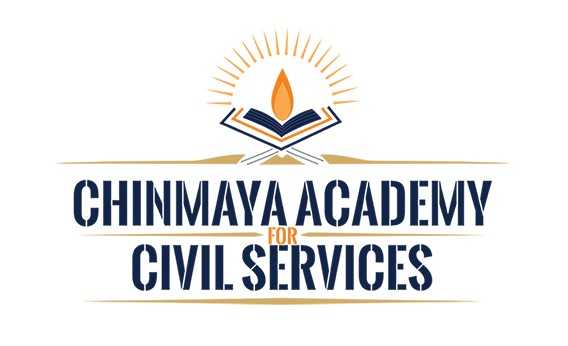How many subjects are there in UPSC exam
Are you aspiring to join the prestigious civil services in India? The UPSC exam is your gateway to a career that can make a real difference. But how many subjects do you need to tackle in this challenging test? Let’s dive into the world of UPSC and uncover the answer together.
Exploring the Number of Subjects in the UPSC Exam
Are you curious about the number of subjects in the UPSC exam? Let’s delve into this fascinating aspect of one of India’s most prestigious exams. The UPSC exam consists of a total of nine papers, which cover various subjects to assess candidates’ knowledge and skills comprehensively. These papers include Essay, General Studies (Paper I-IV), Optional Subject Paper I-II, and the English and Indian Language Papers.
The core subjects like History, Geography, Polity, Economy, Science & Technology are crucial for a well-rounded preparation strategy. However, what sets UPSC apart is the provision for optional subjects that allow candidates to showcase their expertise in specific areas. Choosing the right combination of optional subjects is key to maximizing your score and playing to your strengths.
With multiple subjects to cover, effective time management and study strategies become essential. It’s important to create a structured study schedule focusing on each subject equally while also allocating time based on your proficiency level in each topic. By exploring the diverse range of subjects within UPSC, you can tailor your preparation approach for success on exam day.
The Core Subjects of the UPSC Exam
The core subjects of the UPSC exam are essential for every aspiring civil servant. These subjects form the foundation of the exam and test candidates on their knowledge in various areas. From history to geography, political science to economics, these core subjects cover a wide range of topics that are crucial for understanding society, governance, and administration.
Each subject plays a vital role in shaping the overall preparation strategy for the UPSC exam. Candidates must dedicate ample time and effort to mastering these core subjects to increase their chances of success. While challenging, studying these subjects thoroughly can provide a solid base for answering questions across different sections of the exam.
Moreover, a deep understanding of these core subjects not only helps in clearing the preliminary and mains exams but also lays a strong foundation for future administrative roles. Aspirants should approach these subjects with dedication and develop a comprehensive study plan to excel in each area covered by the UPSC exam.
Optional Subjects and Their Importance
When it comes to the UPSC exam, choosing optional subjects is a crucial decision that can significantly impact your overall performance. Optional subjects allow candidates to showcase their expertise in specific areas of interest, giving them an edge during the selection process.
Opting for the right combination of optional subjects can not only enhance your chances of success but also demonstrate your depth of knowledge and understanding to the examiners. It’s essential to select optional subjects that align with your strengths, interests, and career aspirations.
While some candidates may opt for popular optional subjects like History or Geography, others may choose lesser-known ones like Anthropology or Public Administration based on their background and comfort level. The key is to strike a balance between scoring potential and personal interest when selecting optional subjects for the UPSC exam.
The importance of optional subjects lies in providing candidates with an opportunity to showcase their unique skills and knowledge while demonstrating their passion for a particular field.
Tips for Choosing the Right Combination of Subjects
Choosing the right combination of subjects for the UPSC exam is crucial for your success. Consider your strengths and interests. Opt for subjects that you are passionate about as it will keep you motivated throughout your preparation journey.
Research each subject thoroughly to understand their syllabus and level of difficulty. This will help you gauge how much time and effort you need to dedicate to each subject.
Additionally, seek guidance from mentors or seniors who have cleared the exam. Their insights can provide valuable information on which subjects complement each other well or which ones are scoring better in recent years.
Moreover, balance out your choices by selecting a mix of technical and non-technical subjects to showcase a diverse skill set during the exam.
Don’t forget to assess your study schedule and availability before finalizing your subject combination. Make sure that you allocate enough time for each subject based on its weightage in the exam pattern.
Strategies for Preparing for Multiple Subjects
Preparing for multiple subjects in the UPSC exam can be a daunting task, but with the right strategies, it can be manageable. One key approach is to create a study schedule that allocates specific time slots for each subject. This helps in maintaining focus and ensuring comprehensive coverage of all topics.
Another effective strategy is to prioritize subjects based on their weightage and your proficiency. By focusing more on subjects you find challenging while still revising others regularly, you can optimize your preparation efficiently.
Additionally, practicing previous years’ question papers and mock tests for each subject can help you familiarize yourself with the exam pattern and improve time management skills. It’s crucial to stay organized, set realistic goals, and seek guidance from mentors or coaching institutes when needed.
Remember, consistency is key when preparing for multiple subjects. Stay motivated, stay disciplined, and stay dedicated towards achieving success in the UPSC exam!
Conclusion
The UPSC exam is a prestigious and challenging examination that requires in-depth knowledge of various subjects. With a thorough understanding of the core and optional subjects, as well as careful planning and preparation, candidates can increase their chances of success in this competitive exam.
By selecting the right combination of subjects based on their strengths and interests, aspirants can tailor their preparation to suit their capabilities. It is crucial to develop effective strategies for managing time efficiently while studying multiple subjects simultaneously.
Success in the UPSC exam hinges on dedication, hard work, and a strategic approach to mastering the diverse range of topics covered. With perseverance and a focused mindset, aspiring civil servants can navigate through the complexities of the exam landscape and emerge victorious in achieving their career goals.


